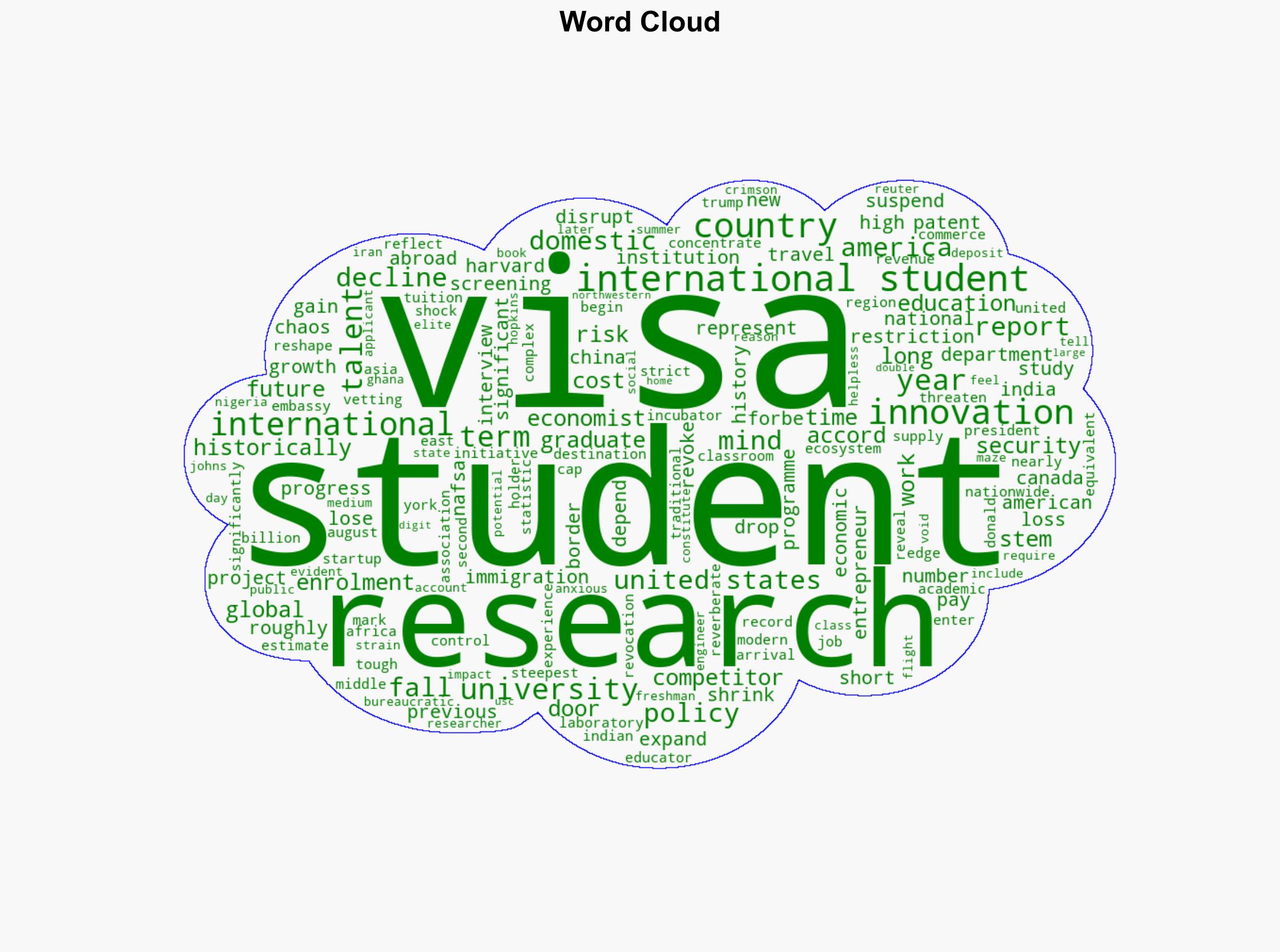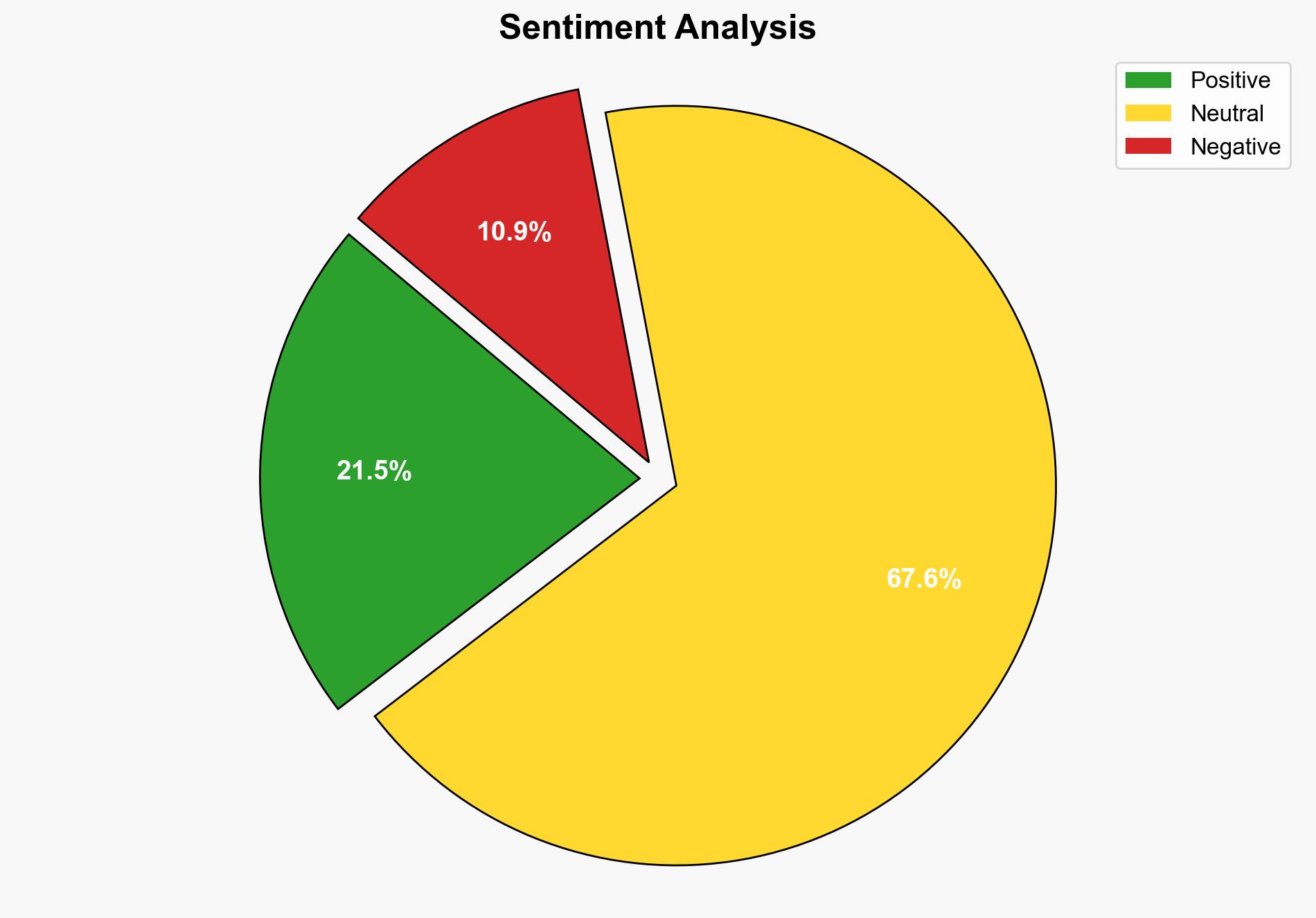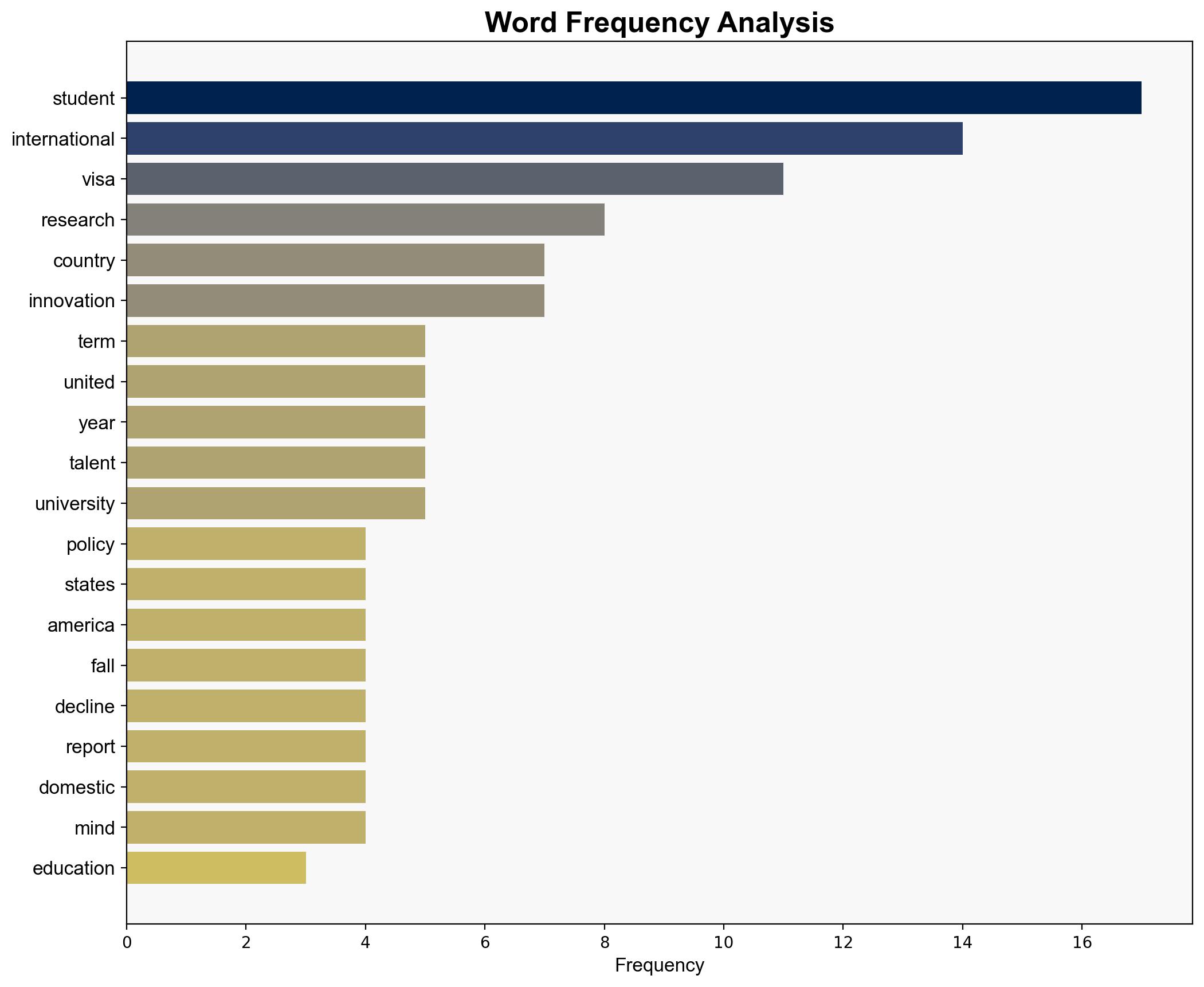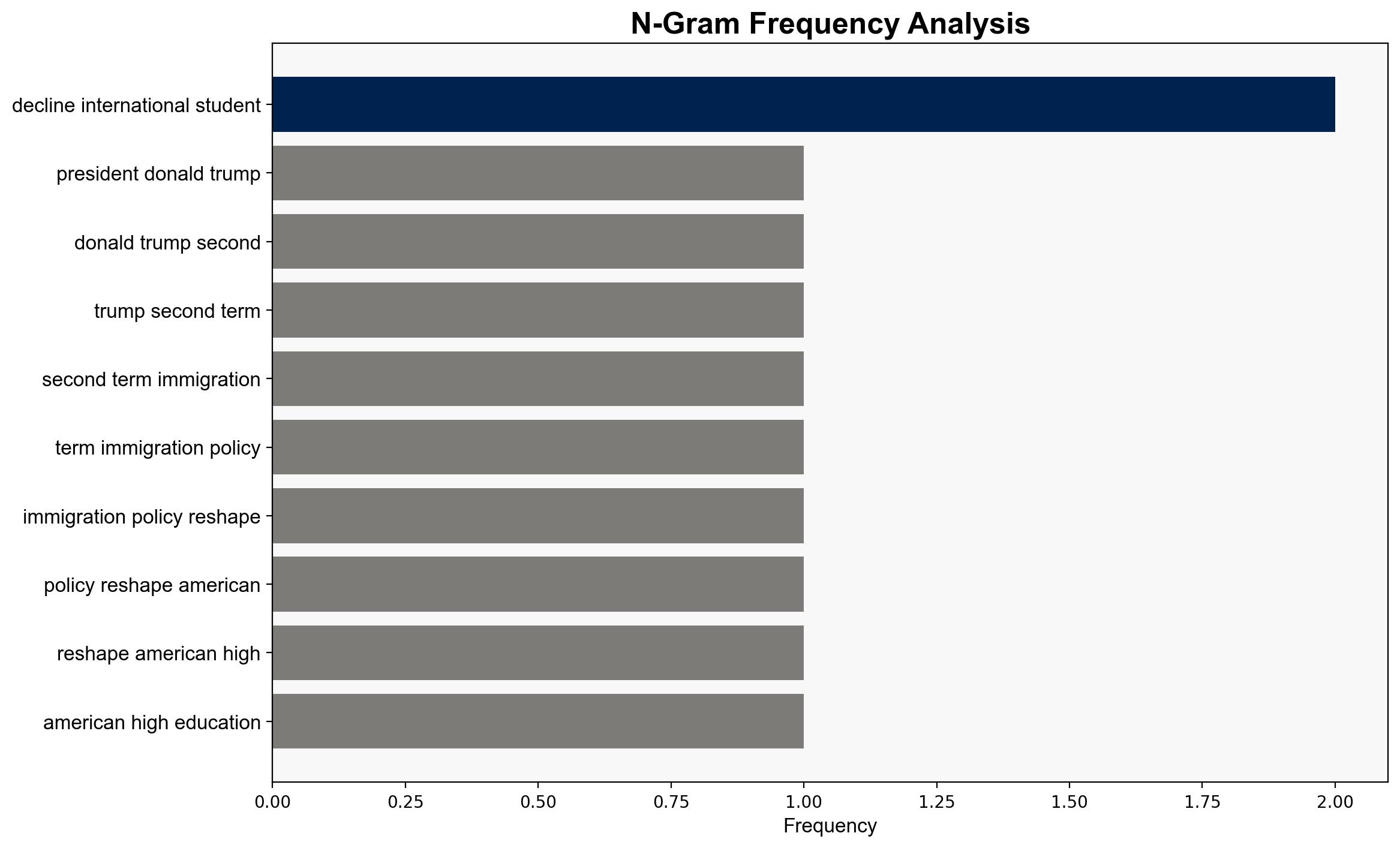Trumps student visa crackdown What is wrong with it and why America will pay the price – The Times of India
Published on: 2025-10-27
Intelligence Report: Trump’s Student Visa Crackdown – Implications and Strategic Consequences
1. BLUF (Bottom Line Up Front)
The strategic assessment indicates a high likelihood that the U.S. student visa crackdown will have detrimental effects on the country’s innovation ecosystem and economic growth. The most supported hypothesis suggests that these policies will lead to a significant decline in international student enrollment, adversely impacting research, innovation, and economic sectors. It is recommended that the U.S. reconsider these policies to maintain its competitive edge in global education and innovation. Confidence Level: High.
2. Competing Hypotheses
Hypothesis 1: The visa crackdown will lead to a significant decline in international student enrollment, negatively impacting the U.S. innovation ecosystem and economic growth.
Hypothesis 2: The visa crackdown will enhance national security and create opportunities for domestic students, ultimately benefiting the U.S. economy by safeguarding sensitive research and reducing dependency on foreign talent.
Using ACH 2.0, Hypothesis 1 is better supported by the evidence, including the reported decline in international student numbers and the economic contributions they make.
3. Key Assumptions and Red Flags
Assumptions:
– Hypothesis 1 assumes that international students are crucial to the U.S. innovation ecosystem and economic growth.
– Hypothesis 2 assumes that national security threats from international students outweigh their economic contributions.
Red Flags:
– Lack of concrete evidence linking international students to significant national security threats.
– Potential bias in assuming domestic students can fill the gap left by international students.
4. Implications and Strategic Risks
The visa crackdown risks diminishing the U.S.’s role as a global leader in education and innovation. This could lead to a talent drain to other countries, such as Canada and the UK, which are actively courting international students. Economically, the U.S. may face a talent deficit in high-growth sectors, potentially weakening GDP and innovation capacity. Geopolitically, this could reduce U.S. influence in global academic and research collaborations.
5. Recommendations and Outlook
- Reevaluate visa policies to balance national security with economic and innovation needs.
- Enhance collaboration with international educational institutions to maintain global academic ties.
- Scenario Projections:
- Best Case: Policy adjustments lead to a resurgence in international student enrollment, bolstering innovation and economic growth.
- Worst Case: Continued decline in international students results in a significant talent gap and economic downturn.
- Most Likely: Partial recovery in student numbers with moderate economic impact, contingent on policy adjustments.
6. Key Individuals and Entities
– Michael Lovenheim (Economist, Cornell)
– Giovanni Peri (Economist, UC Davis)
– Harvard University
– Johns Hopkins University
– Northwestern University
– USC
7. Thematic Tags
national security threats, economic impact, global education, innovation ecosystem




